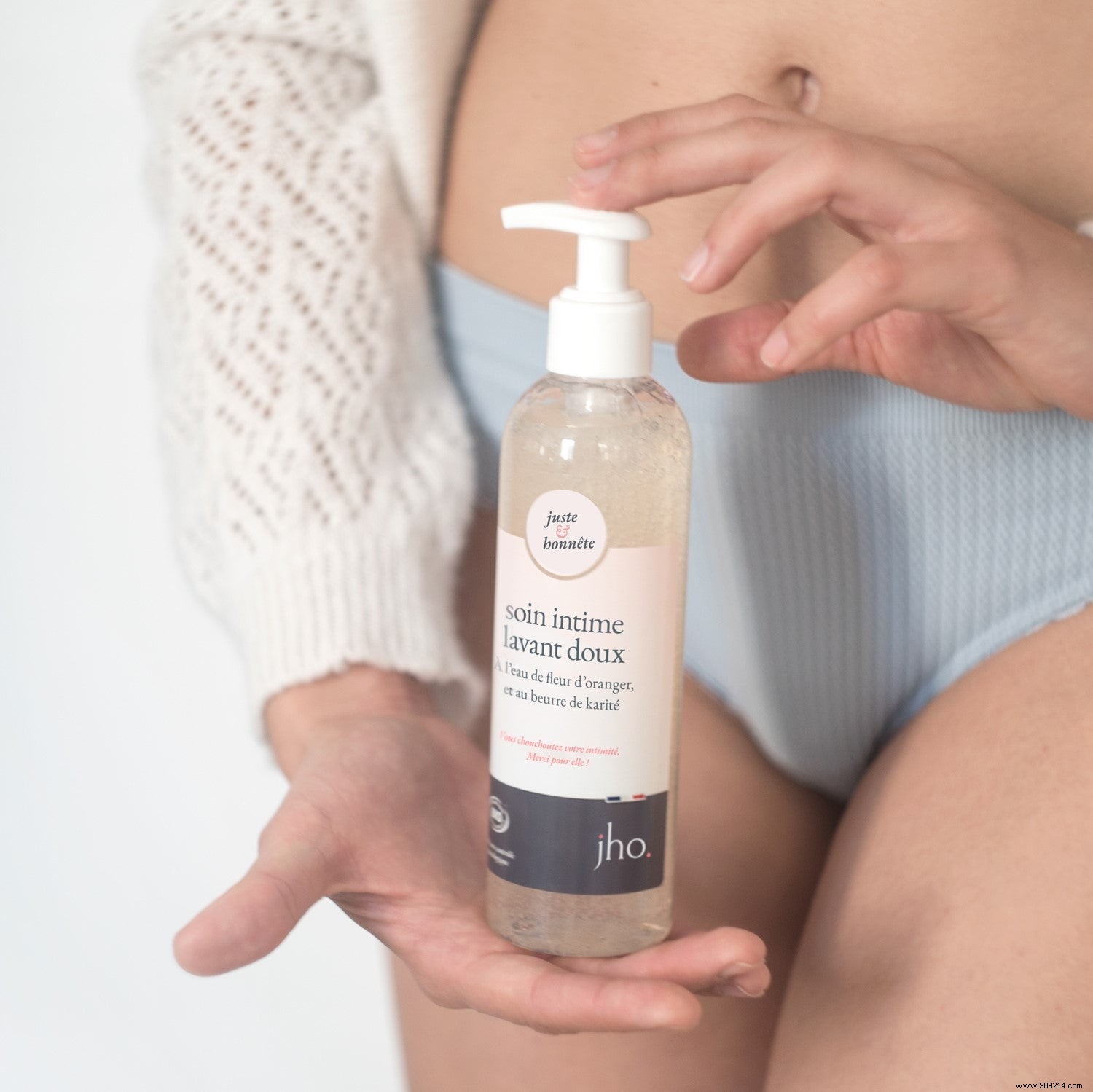Cleansing gels, creams, wipes or even intimate deodorants, supermarket shelves are full of products specifically dedicated to feminine hygiene. But are they really necessary and good for your health? The Jho team helps you see more clearly through this article!
Our vagina is a real gem of technology. Completely self-cleaning, it has the natural ability to expel dirt via the famous vaginal discharge . It also knows how to fight against infections thanks to Döderlein bacilli, good bacteria that make up the majority of the vaginal flora. These bacilli make our vagina slightly acidic, which creates an environment that is not conducive to the development of infectious agents.
Our vagina is both capable of cleaning itself and of defending itself against infections . Better to let him work in peace! Above all, do not try to clean it, including with clear water (vaginal douche) or intimate hygiene products, because this is the best way to disrupt the vaginal flora and contract fungal infections or other infections.
If the inside of the vagina does not have to be cleaned, it is however important to wash the external part. The vulva must be cleaned daily and gently during the shower or intimate toilet. Be careful, most shower gels and soaps are to be avoided because they are too aggressive for this extremely sensitive intimate area.
Ideally, the product used must have a neutral or slightly acidic physiological pH (between 4 and 5.5), like that of our vagina. This protects the mucous membranes and does not attack the intimate flora if the product comes into contact with the vagina.
While intimate cleansers are generally formulated to have a pH close to that of our vagina, they are however often filled with chemicals and endocrine disruptors. To avoid irritation, itching or allergies, it is better to favor them without perfume and based on ingredients of natural origin or even from organic farming… Like that of Jho!

During menstruation or in hot weather, it is tempting to pull out an intimate wipe to feel a little cooler. However, health professionals are unanimous, we had better forget our pack of wipes at the bottom of our purse! The vast majority of these products contain synthetic fragrances which are very aggressive, both for the skin and for the balance of the vaginal flora. They are also very allergenic and can cause severe irritation. Intimate wipes should therefore never be used daily. They can help out on an ad hoc basis, if it is impossible to shower before a medical appointment, for example.
Finally, on the list of the most useless inventions of humanity, there is probably the intimate deodorant. Sold in the form of sprays, these deodorants are sprayed directly on the vulva. The goal:to leave a delicious floral (and chemical) scent on your vulva. Not only are these products pointless because a healthy vagina does not smell bad, but they can also be extremely dangerous. If you are complexed by your vaginal odor, perhaps it is a dysfunction of your flora. In this case it is better to consult a gynecologist or a midwife.
During menstruation, blood loss is usually accompanied by a stronger vaginal odor than usual. In question, bacteria from the lining of the uterus and evacuated with bleeding. Here are some tips for adopting good hygiene during your period, without damaging your vaginal flora:
Shower once a day using a neutral physiological PH product like Jho's for cleaning the vulva.
Rinse the vulva with clear water between two showers rather than using intimate wipes.
Change sanitary protection very regularly (sanitary napkins, tampons, cups, etc.). This considerably reduces bad odors and the risk of infection.
Wear cotton underwear. Certain materials such as elastane or lycra generate friction and promote the appearance of fungal infections.
You have understood it:we can trust our body to regulate our vaginal flora, and on a daily basis, take care of our vulva very simply with natural, organic and ph-neutral treatments.
Our privacy is precious, let's respect it!
Ask us your questions in the comments. :)